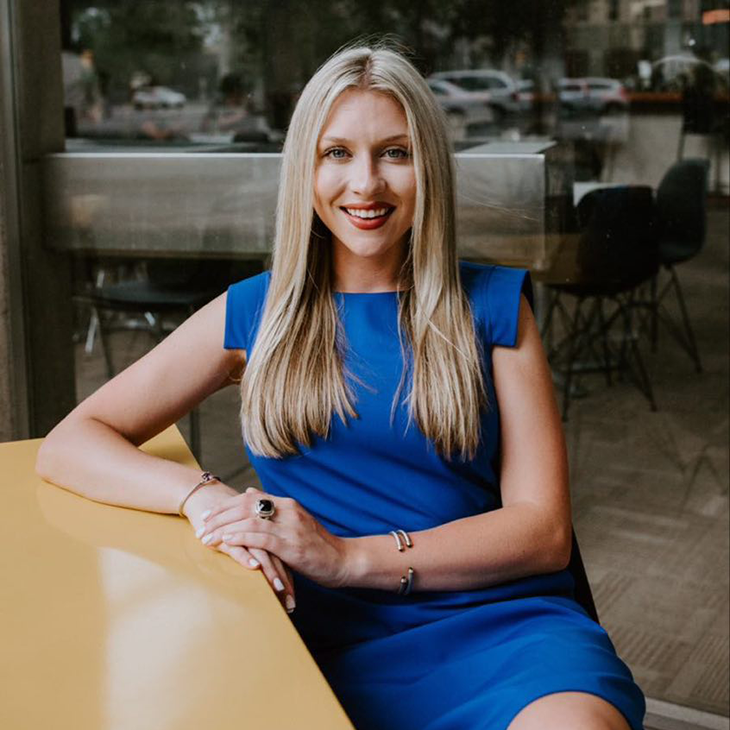
Alumni Feature: Lilli Higgins
Wednesday, July 15, 2020
Lilli Higgins graduated in 2017 with a bachelor's in recreation management and therapeutic recreation (recreation management and recreational therapy). She is the founder and executive director of Together Just, the only outpatient recreational therapy program in Oklahoma.
You founded Together Just, a community mental health services non-profit and the only outpatient recreational therapy program in Oklahoma. What was your inspiration in taking this initiative?
It had been a dream of mine to help reform mental health in our state by offering more resources. As I was working at Shadow Mountain, my eyes were opened to the need for more mental health support services. Shadow Mountain was the only RAD-specific (Reactive Attachment Disorder) treatment facility in the state of Oklahoma. When the hospital closed, all of the kids I was treating were displaced, and their families lost the only resource they had. This was devastating to me and is what pushed me to really start putting pen to paper of what it would look like to start a non-profit and how I could develop mental health resources for our community that are accessible, low-cost or even free.
What are your day-to-day tasks in leading Together Just?
Together Just is just getting off the ground, so I wear many hats. When developing the services we would offer, I wanted to be able to help anyone and everyone. Currently in my day-to-day, I am providing outpatient recreational therapy for children and adolescents through individual and group sessions; advocating for my clients and their families in the schools and the community; offering primary caregiver education; and during the school year, facilitating the Positive Minds Program—our school-based mental health education program I developed.
How would you describe recreational therapy?
I always start with describing recreational therapy as “play with purpose.” It looks at the whole person, their interests, their desires, their goals, everything that makes up a person. Then, we incorporate it into their treatment. With every client I see, my first step is understanding what they like to do and what interests them; maybe they like to paint or play music. I then use their interests to develop treatment goals. It is important to understand that recreational therapists use a collaborative, person-centered technique incorporating all aspects of the client's life, making the therapy process more meaningful and relevant to their every day life.
What OSU experiences and classes prepared you for what you do now?
As a freshman, I took an introductory course with Dr. Tim Passmore, at the time planning to go to physician’s assistant school. Dr. Passmore told our class, “Would you look at a child with cerebral palsy who couldn’t get out of bed on their own and say, ‘Just get up. Do it on your own; what’s so hard?’” Then he said: “So, why would you look at a child or a person with depression who couldn't get out of bed and just say, ‘Just get out of bed! What's so hard about it?’” That was a major lightbulb moment for me and showed me mental illness is just as important as physical illness, but oftentimes overlooked because we can't see it. This is why I started on my road of advocating and becoming more educated about mental health.
What advice do you have for current OSU students?
Never say no to an opportunity—this is what helped me build my professional network! Engage with your peers and get to know your professors: These people will soon become your colleagues.
Your social media accounts for Together Just highlight many other therapists and interventions you use with clients. What has been the response to hearing stories on mental health?
At first, I was kind of blind to the fact people didn't know what recreational therapy was because it was well known at OSU and during my clinical internships. I started a therapy Instagram to network with colleagues and to advocate for mental health.
The feedback I received was amazing; I was able to reach so many people. When I started Together Just, I merged the account to promote the non-profit while still using it to network and advocate. Together Just now uses our Instagram and Facebook to mentor young therapists and connect people in our community to resources. Recently, during Mental Health Awareness Month (MHA), I had nearly 2,000 people reach out through social media.
To support MHA, we went live every Tuesday with someone in our community who has faced mental health issues so they could share their story. The purpose behind this was to empower others to speak up and get help, while also giving them comfort that they are not alone.
